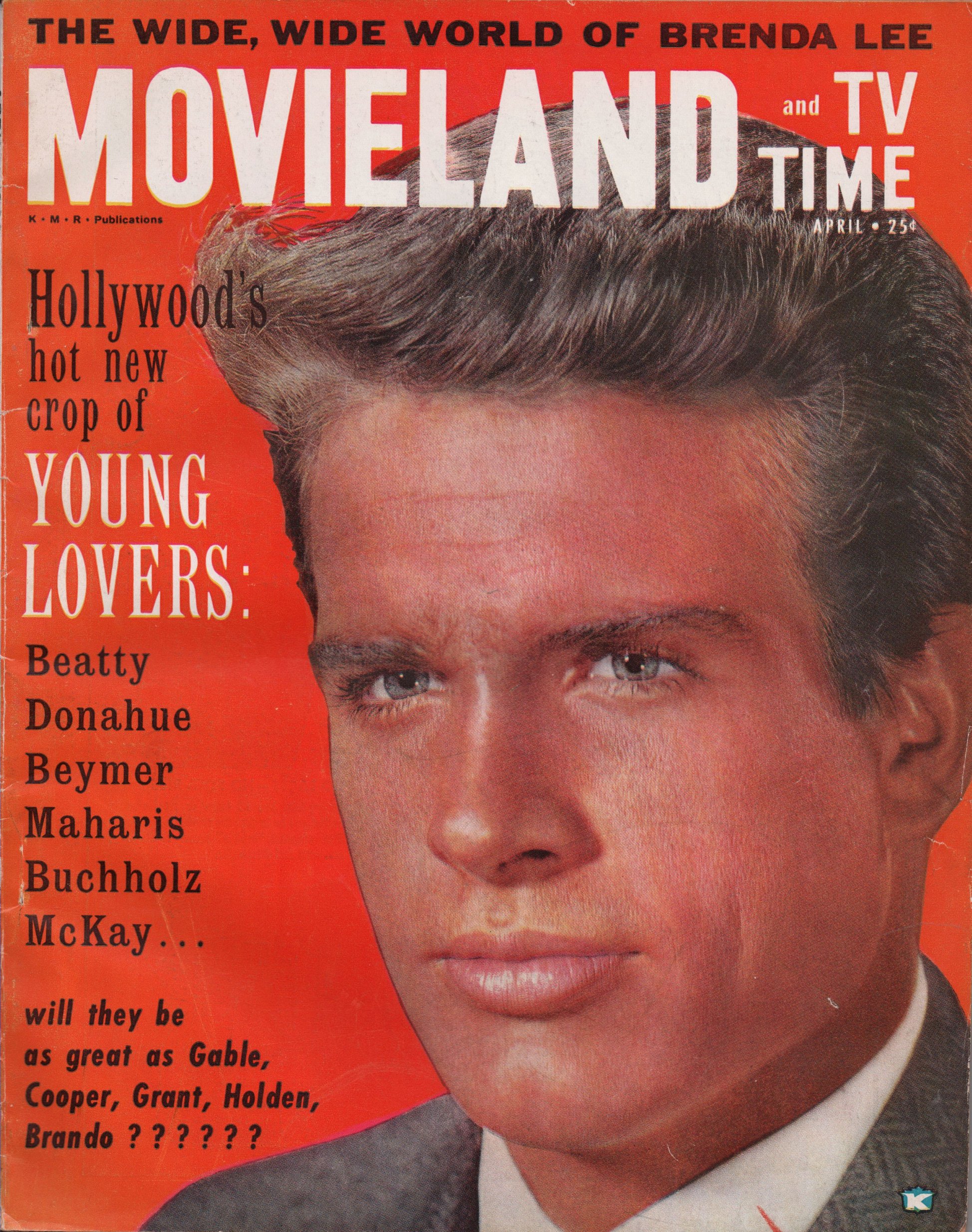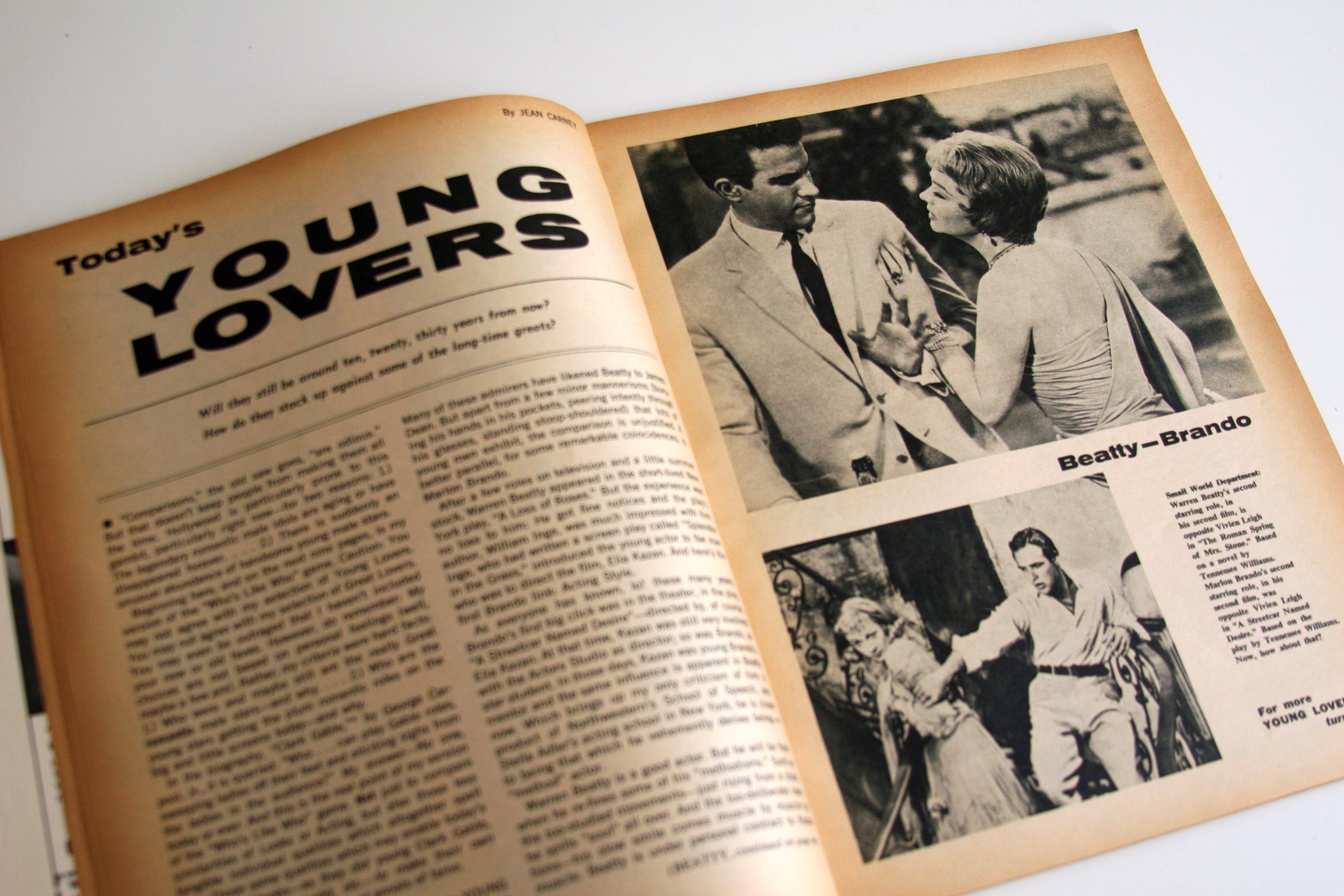Hit Me With Your Best Shot continues with A Streetcar Named Desire (1951). This week's film was chosen in light of the Tennessee Williams Centennial, the great writer's 100th anniversary is this weekend. If this is your first "best shot," partipicants are asked to watch a film, and select its best shot (or their favorite, natch) and post it, with or without an accompanying essay.
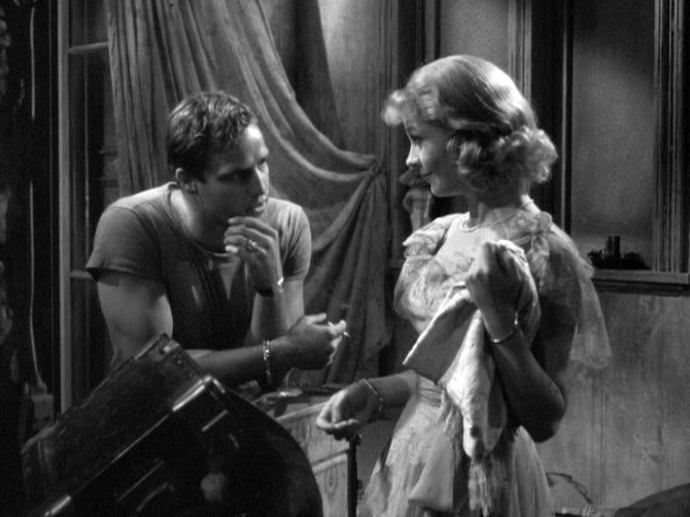
Stanley: Yknow there are some men that are took in by this Hollywood glamour stuff and some men that just aren't.
Blanche: I'm sure you belong in the second category.
Stanley: That's right.
Blanche: I cannot imagine any witch of a woman casting a spell over you.
Stanley: That's right.
Elia Kazan's masterful adaptation of Tennessee Williams happens to be, by a significant margin, the best film version of any of his work. It moves more elegantly around Hollywood's censorship of then risque material than the other biggies that followed (Cat on a Hot Tin Roof, Suddenly Last Summer and Sweet Birth of Youth) and it's managed to be more definitive than any film version of the other play vying for most immortal Tennesse Williams Creation (The Glass Menagerie). The 1951 film will forever be revered, and justifiably so, for providing an irreducibly perfect 'moment in time' look at the shifting of Hollywood acting; the friction between pre-50s artifice in Vivien Leigh and Blanche DuBois and post-50s "realness" in Brando's "Method" Stanley is still absolutely sensational 60 years on. As are both approaches to acting, I might add as a fine point (provided the actor is a skilled one). Too often we view all sweeping artistic shifts as progress when they are more often than not, merely lateral aesthetic shifts, opening up new pleasures but not truly replacing the old ones. Time marches on; we explore new things.
In the understandably immortal hoopla surrounding two of the greatest screen performances of all time, we often lose sight of other pleasures. A Streetcar Named Desire has many of them from Tennessee William's indestructable poetry to Elia Kazan's assured guiding hand to the Oscar-winning art direction and the expressive shadowy lighting from Harry Stradling Sr. Stradling manages effects that are both harsh and ethereal, both ugly and beautiful, but not always in the combinations you'd expect them to be and sometimes both at ones. His camera and lights perfectly bridge all of the performances, moods and characters.
But the way he lights Stella (an inspired Kim Hunter) has always fascinated me. In her scenes with Blanche, the shadows often obscure one or the other of her faces and in those scenes which highlight the mad desire for Stanley her eyes are often obscured, with only tiny sparks of light flashing and reflecting from them.
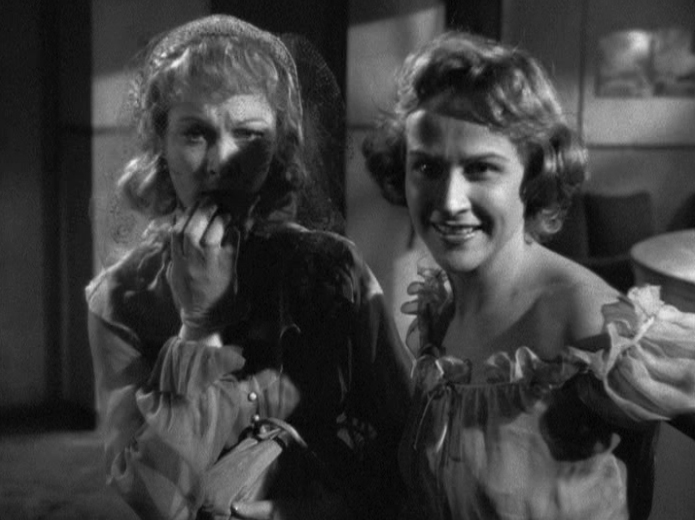
Stella: Isn't he wonderful looking?
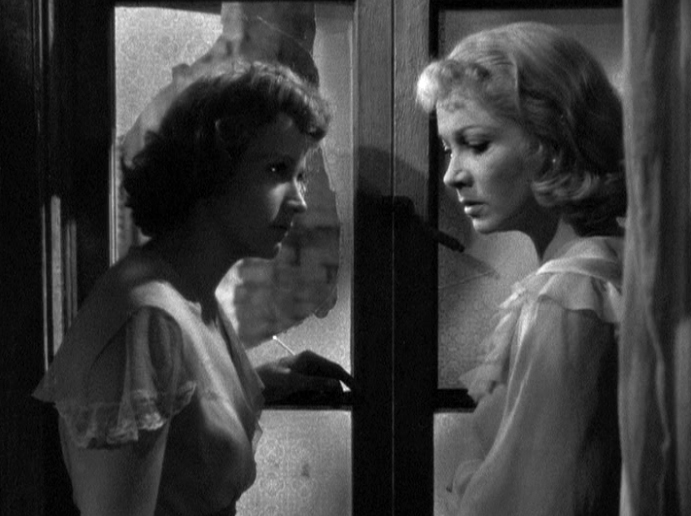
Blanche: What you're talking about is desire, just brutal Desire. The name of that rattletrap streetcar that bangs through the Quarter, up one old narrow street and down another.
Stella: Haven't you ever ridden on that streetcar?
Stella seems unknowable, feral, as dangerous in her own singlemindedness as Blanche is in her self-deception and Stanley is in his brutality. Her eyes have an animalistic defiant glint but it's not just her irises; this is one of the horniest performances ever captured on film.
This shot in particular is just fascinating, pulling the central triangular drama into sharp (deep) focus.
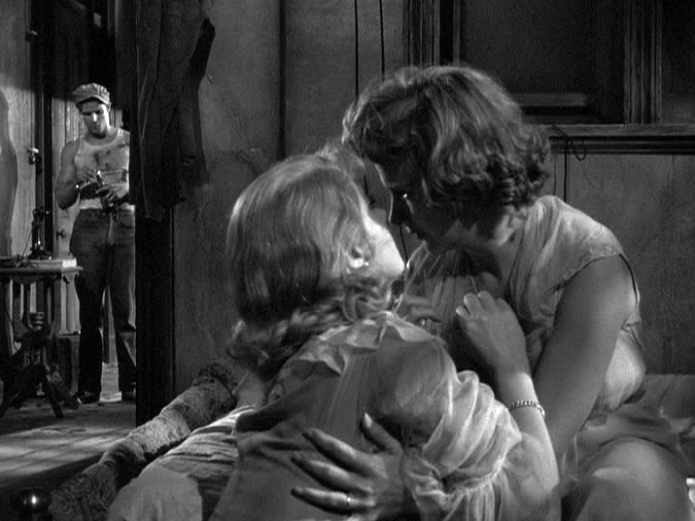 My pick for best shot.
My pick for best shot.
The sisters have been having a serious chat. The previous night's tumult involving poker, flirtations, drunken messiness, abuse, "Stelllllaaaaaaaaaaaa!!!!" and an obvious offscreen fuck-a-thon between Mr & Mrs Kowalski have disrupted their bond. If they're not quite seeing eye to eye the sisters are beginning to really listen to each other until they hear Stanley's return. We see his shadow first on the left side as then his body as the women immediately stop talking. For the next agonizing few seconds, they seem absolutely frozen with indecision, though there's a curious sapphic charge to Blanche's silenced pawing pleas. There's another "Stella", Stanley's foolproof siren call, from the background and then Stella, ever so slightly turns his way, catching the light, his light if you want to get figurative though not literal.
She's lost to Blanche and herself again. Though Stella ends the movie an hour and some minutes later swearing Stanley off forever, our guess is she hops right back on that rattletrap streetcar named Desire once the credits roll. She's up one old narrow street and down another with Stanley as her violent conductor.
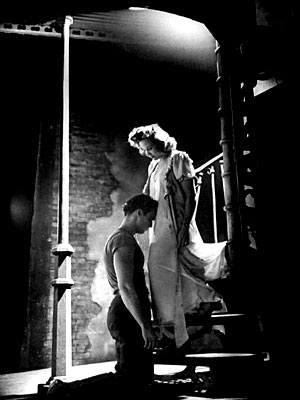 The Kindness of Strangers
The Kindness of Strangers
Enjoy these participating posts at other fine movie-loving blogs.
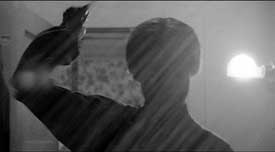 Next Wednesday
Next Wednesday
Alfred Hitchcock's PSYCHO (1960) in celebration of the release of a stunning debut novel "What You See In The Dark" by Manuel Muñoz which brushes up against this movie in interesting ways. Coming soon: an interview with the author and a book giveaway. But about BEST SHOT: It's impossible that everyone will love the shower scene best, right? Why don't you join us and try to pinpoint your favorite image? Next Wednesday at 10 PM right here... and at your place if you participate.
 Wednesday, June 4, 2014 at 5:00PM
Wednesday, June 4, 2014 at 5:00PM  Episode 23 of 52: In which Tracy and Hepburn make a Western because why not?
Episode 23 of 52: In which Tracy and Hepburn make a Western because why not?









